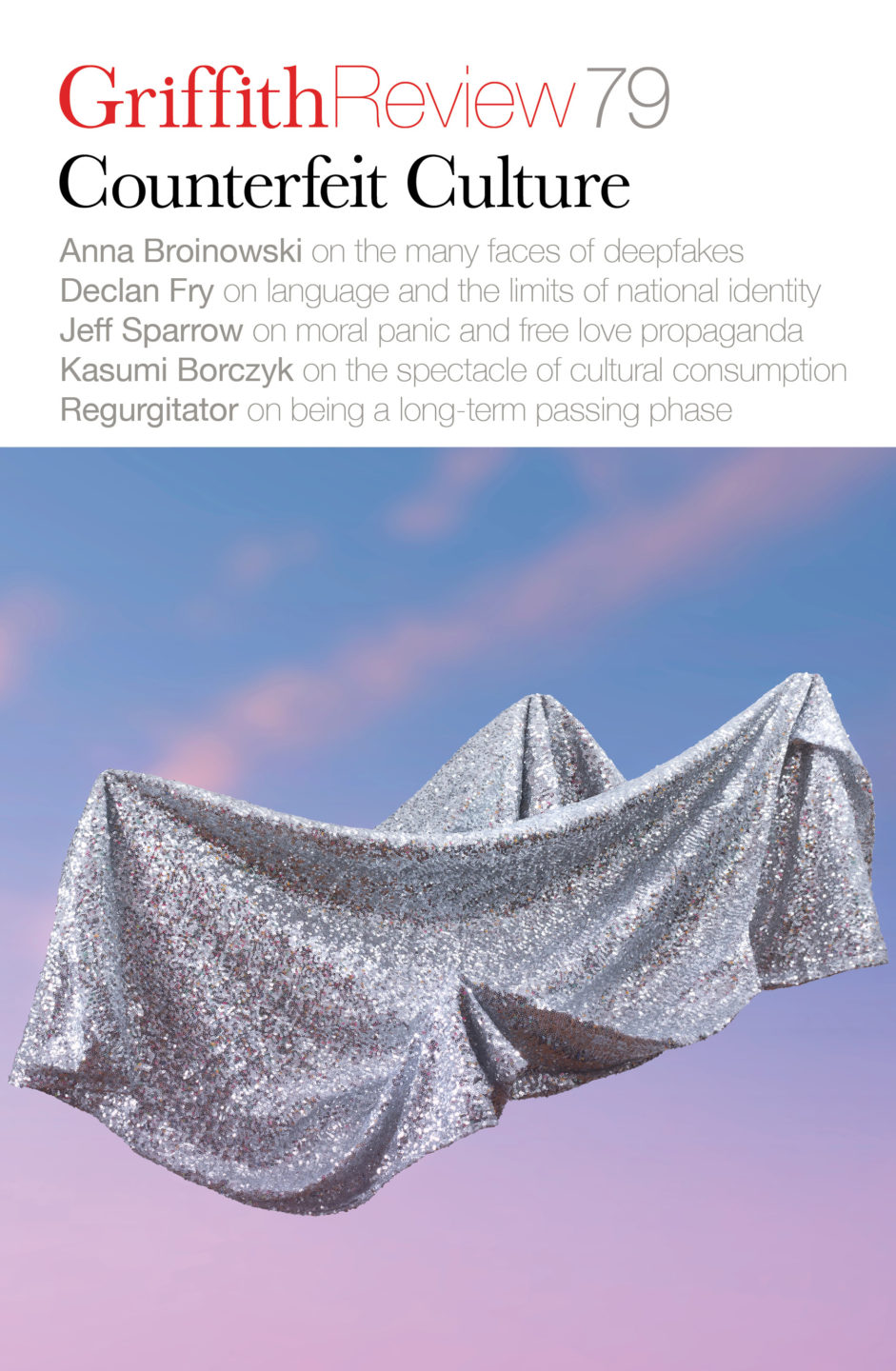Featured in

- Published 20230207
- ISBN: 978-1-922212-80-1
- Extent: 264pp
- Paperback (234 x 153mm), eBook


Already a subscriber? Sign in here
If you are an educator or student wishing to access content for study purposes please contact us at griffithreview@griffith.edu.au
Share article
More from author

War of words
GR OnlineDuring my first news break at 6.30 am, I read the news reports about Israeli airstrikes out verbatim. But as I spoke into the mic, I felt unsettled by what I was saying. I had naively thought that this kind of bare-bones style of ‘raw’ AAP reportage is simply factual, and free from linguistic sleights of hand. But of course, I was wrong.
More from this edition

A passing phase
In ConversationI went to Tim’s Guitars years ago and I saw Grant Hart from Hüsker Dü do a solo thing and he had a Q&A after the solo. And some guy went, ‘How often do you practise guitar?’ And then Grant Hart said, ‘I never practise guitar, practising guitar gets in the way of my personality.’ And I was like, ‘Oh wow, that’s actually really true.’

Wax
FictionI touch the wax of their pickaxes, then run my hand along the wax rock of the walls. One man squats a few metres away from the others, holding a pan. As I move towards him, I notice a label with descriptive text about Victoria’s gold rush, a reminder of the foundational gruesomeness of the enterprise – the colonial history of world’s fairs, or zoos, here insisting on itself in a minor carnival of the macabre.

The future of art fraud
Non-fictionOver lunch with the international art auctioneer, I told him the art dealer – a mutual acquaintance – said she would ‘support’ my work at auction. She explained that if an artwork didn’t receive enough bids during an auction, she would bid to buy it for a higher amount. Then there would be a public record of my work being sold for the value assigned by her, which she would show people when reselling it privately.